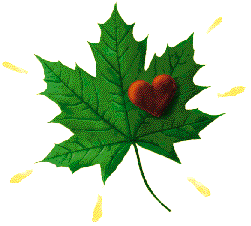Origin of the name "Canada"

(NC)-In 1535, two Indian youths told Jacques Cartier
about the route to "kanata". They were referring to the village of
Stadacona; "kanata" was simply the Huron-Iroquois word for
"village" or "settlement". But for want of another name, Cartier
used "Canada" to refer not only to Stadacona (the site of
present-day Québec City), but also to the entire area
subject to its chief, Donnacona. The name was soon applied to a
much larger area: maps in 1547 designated everything north of the
St. Lawrence River as "Canada".
Soon explorers and fur traders opened up territory to the west and
to the south and the area depicted as "Canada" grew. In the early
1700s, the name referred to all lands in what is now the American
mid-west and as far south as present-day Louisiana.
The first use of "Canada" as an official name came in 1791 when
the Province of Québec was divided into the colonies of
Upper and Lower Canada. In 1841, the two Canadas were again united
under one name, the Province of Canada. At the time of
Confederation, the new country assumed the title the Dominion of
Canada.